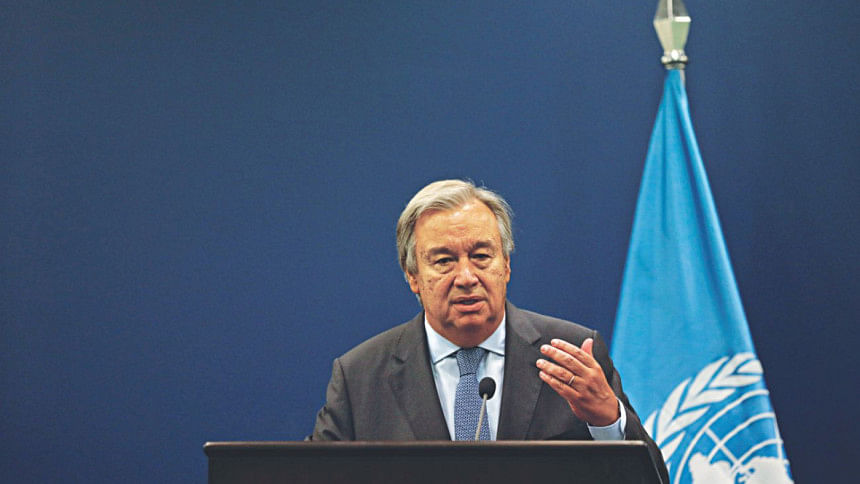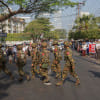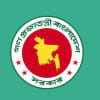Suu Kyi’s last chance

UN Secretary-General Antonio Guterres says Myanmar's de facto leader Aung San Suu Kyi has "a last chance" to halt an army offensive that has forced tens of thousands of Rohingyas to flee to Bangladesh.
"The tragedy will be absolutely horrible" unless she acted now, Guterres told BBC's HARDtalk ahead of UN General Assembly that will feature the Rohingya refugee crisis, one of the fastest growing in recent years.
The UN chief said Suu Kyi had a last chance to stop the brutal crackdown during her address to the nation tomorrow. "If she does not reverse the situation now, then I think the tragedy will be absolutely horrible, and unfortunately then I don't see how this can be reversed in the future."
The remarks came as more than 4,00,000 people from the minority group in Buddhist-majority Myanmar crossed over into Bangladesh in less than three weeks.
Bangladesh authorities, UN agencies and NGOs have been struggling to provide food, shelter, water and medicine to so many people in such a short period of time.
The UN Migration Agency fears if the trend continues, entire Rohingya population of 1.1 million may come to Bangladesh.
The influx was triggered by Myanmar army's response to insurgent attacks on 30 police posts and an army base in Rakhine State on August 25.
According to refugees now sheltered in Cox's Bazar, Myanmar security forces are torching houses, killing unarmed men and raping women.
Human Rights Watch and Amnesty International, analysing photographic and satellite images, said security forces and vigilante mobs are carrying out a scorched-earth policy in Rakhine, burning down entire Rohingya villages and shooting at people as they try to flee.
The rights groups say the atrocity is a targeted campaign to push the Rohingya people out of Myanmar, bearing the hallmarks of “ethnic cleansing”.
The United Nations too denounced the “brutal security operation” against Rohingyas in Rakhine State as a “textbook example of ethnic cleansing”.

Talking to the BBC on Saturday, the UN secretary general reiterated that the Rohingyas should be allowed to return home.
He said it was clear that Myanmar's military "still have the upper hand" in the country, putting pressure "to do what is being done on the ground" in Rakhine.
Suu Kyi, a Nobel Peace Prize laureate who spent many years under house arrest in the junta-run Myanmar, is now facing growing criticism over the Rohingya issue.
She will not attend the UN General Assembly in New York, and has claimed that the crisis is being distorted by a "huge iceberg of misinformation". She said tensions were being fanned by fake news promoting the interests of terrorists.
Meanwhile, in the aftermath of the latest attacks, Tatmadaw, the armed forces of Myanmar, has called for President U Htin Kyaw to convene a meeting of the 11-member National Defence and Security Council (NDSC).
Tatmadaw wants the NDSC, on which it controls six seats, to exercise its authority to declare a state of emergency in northern Rakhine and place the area under martial law, reported Frontier Myanmar yesterday.
The Tatmadaw's policy for Rakhine calls for the application of the 1982 Citizenship Law.
If the law was applied to Muslims living in northern Rakhine's Maungdaw Township, the vast majority could face the prospect of being declared illegal immigrants and sent to refugee camps, writes Sithu Aung Myint of Frontier Myanmar.
REFUGEE DEATH FEARED
Aid agency Save the Children expressed fear that refugee lives could be lost amid shortage of food, shelter, water and basic hygiene support in the makeshift camps of Cox's Bazar.
It said many people are arriving hungry, exhausted and with no food or water, having left their homes in fear of their lives.
"I'm particularly worried that the demand for food, shelter, water and basic hygiene support is not being met due to the sheer number of people in need. If families can't meet their basic needs, the suffering will get even worse and lives could be lost," said Save the Children's Country Director in Bangladesh Mark Pierce.

In a statement issued yesterday, he said Bangladesh authorities, local communities and aid agencies are doing all they can to help the refugees.
"However, the humanitarian response needs to be rapidly scaled up, and that can only be done if the international community steps up funding.”
Among the Rohingyas who fled Myanmar are more than 1,100 separated or unaccompanied children.
“This is a real concern as these children are in an especially vulnerable position, being at increased risk of exploitation and abuse, as well as things like child trafficking,” Mark Pierce said.
Meanwhile, a vaccination campaign backed by the UN has been initiated to prevent the spread of potentially deadly diseases among refugee children.
According to a UNICEF news release, the agency and the World Health Organisation are supporting the health ministry-led campaign targeting measles, rubella and polio to inoculate some 1,50,000 Rohingya children below the age of fifteen in 68 refugee settlements near the border.

DHAKA'S ROLE LAUDED
Commonwealth Secretary-General Patricia Scotland has commended the government of Bangladesh for setting aside land to receive hundreds of thousands of refugees from neighbouring Myanmar.
In a statement on Saturday, she said: “This is a major humanitarian crisis, and reports indicate that the majority fleeing are women and children. I am encouraged that Bangladesh has opened its borders to receive those who have felt they had no choice but to leave their homes.
“By providing immediate assistance -- food, shelter and clothing -- to hundreds of thousands of desperate people in this time of great need, the government and people of Bangladesh are acting with characteristic Commonwealth goodwill, and in accordance with our Commonwealth Charter.”
BRITISH ASSISTANCE TO GO UP
Visiting British lawmaker Rushanara Ali has said the role of Myanmar government towards its ethnic minorities is not acceptable.
During a meeting with State Minister for Foreign Affairs Md Shahriar Alam yesterday, she also pointed out the humanitarian crisis caused by Myanmar armed forces by inflicting violence against Rohingyas.
Rushanara, UK prime minister's trade envoy for Bangladesh, mentioned that Bangladesh is gaining moral high ground by giving room to the Rohingya minorities and by giving access to the NGOs in Bangladesh.
The Bangladesh-origin UK lawmaker, who is leading a trade delegation of nine UK rail companies, arrived in Dhaka on Saturday for a week-long visit.
She assured that the aids and investments from the UK will certainly increase in this backdrop.

Meanwhile, Rohingyas living in the UK have called on the British government to help stop "ethnic cleansing" of the minority group in their home country.
They fled to Britain as part of a UN rescue effort following what they describe as cruelty and persecution. They say close relatives have been raped and slaughtered by military forces in Myanmar.
According to Sky News, the Rohingya people once took to the streets of Bradford to demand Aung San Suu Kyi's release, but now they feel betrayed.
A group of 300, who followed a similar route in previous years, have now settled in Bradford. They spoke about the pain of seeing the crisis "explode" on television and social media.
In another development, British MP Anne Main, who is now leading a delegation to Bangladesh, said she will soon visit Rohingya camps to see their situation on the ground.
The delegation includes MPs and members of the Conservative Friends of Bangladesh (CFoB) who will visit camps along the Bangladesh border.
Anne said, "As chair of the APPG on Bangladesh, I have been monitoring the situation for some time. We included visits to the camps in CFoB's itinerary as a priority following concerns that were being expressed to me some months ago."
SOLUTIONS THROUGH UN
Bangladesh wants to rely on the UN to find a solution to the problem it is facing now following the persecution of Rohingyas in Rakhine resulting in the influx.
"The Kofi Annan Commission's report is the basis. We'll be happy if it's implemented," State Minister Shahriar told reporters at the foreign ministry yesterday.
After a meeting with outgoing UN Resident Coordinator in Dhaka Robert Watkins, he said Bangladesh is hoping to get proper and time-befitting steps through the UN.
He added Bangladesh will look for solutions through the UN while it will ensure quick delivery of humanitarian services to Rohingyas who took shelter in Bangladesh.
Watkins said there is only one long-term solution that is to make sure that refugees return to their homeland.
He said this issue has already been discussed in the UN Security Council and it will be discussed in the UNGA.
"I'm sure all kinds of options will be on the table to try to bring about the kind of changes stopping destructions and killings that have been taking place in Myanmar," he told reporters.
IRANIAN TEAM VISITS SHELTERS
An Iranian diplomatic delegation, led by Deputy Foreign Minister for Asia and Pacific Affairs Ebrahim Rahimpour, visited Rohingya refugee camps in the border area of Bangladesh on Saturday.
The team also met a group of residents of these camps and became aware of their latest situation, according to a report of Iran Front Page.
Moreover, the distribution of Iran's humanitarian aid for the refugees, which had been handed over to Bangladeshi authorities yesterday, began in presence of the Iranian delegation.

 For all latest news, follow The Daily Star's Google News channel.
For all latest news, follow The Daily Star's Google News channel. 








Comments